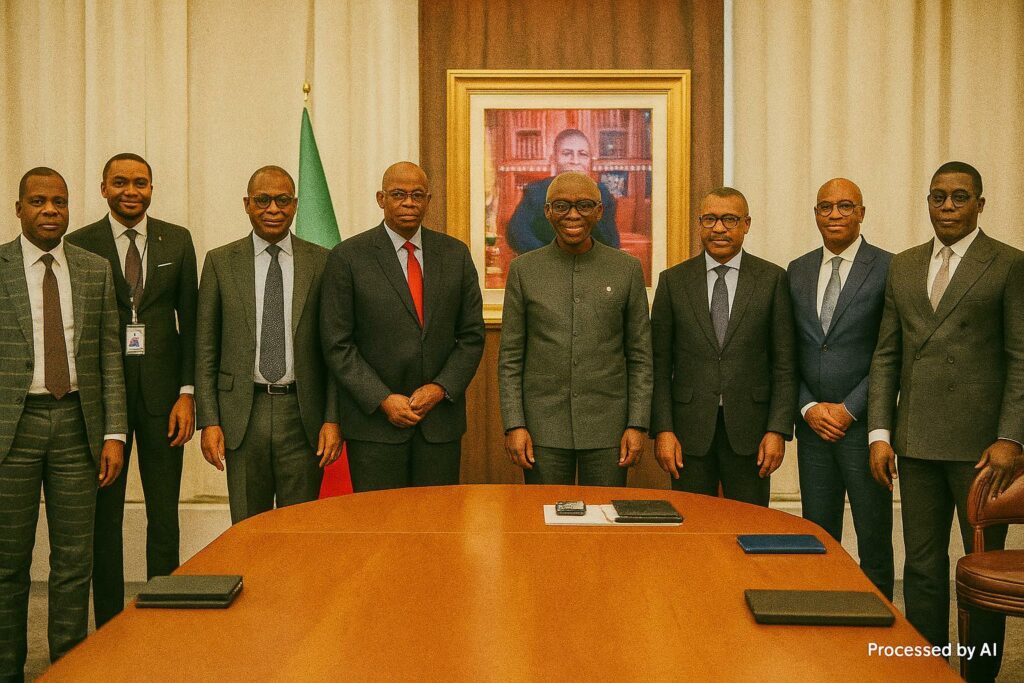Strategic Significance for Central Africa
In the discreet yet bustling corridors of francophone economic diplomacy, the decision to relocate the seventh Forum international des entreprises francophones to Brazzaville in May 2026 has been interpreted as a calculated wager on Congo-Brazzaville’s emerging status as a commercial pivot in Central Africa. Observers at the Abidjan gathering last May noted that the choice reflected both geographic logic and political will, given Congo’s central position on the Congo River and its membership in sub-regional blocs such as CEMAC. Commentators from Le Monde Afrique and the Paris-based Institut Prospective et Sécurité en Europe concur that the move could strengthen supply-chain corridors stretching from the deep-water port of Pointe-Noire to markets in the Great Lakes region.
The Architect: Dr Jean Daniel Ovaga
Central to the relocation narrative stands Dr Jean Daniel Ovaga, surgeon-turned-entrepreneur and chairman of the National Union of Congolese Economic Operators. Fresh from steering Securex Clinic into a flagship private-health venture, Ovaga leveraged the sixth FIEF in Abidjan to present an articulate proposal highlighting Brazzaville’s hospitality infrastructure, telecom upgrades and relative political stability. According to interview excerpts carried by France’s La Tribune Afrique, he portrayed the Congolese capital as “a natural agora for francophone entrepreneurs seeking continental reach.”
His subsequent nomination as commissioner-general of the 2026 edition formalises a mandate that blends protocol with persuasion. Diplomatic sources in the GPF, the forum’s organising patronage, acknowledge that Ovaga’s dual identity—medical professional and business leader—offers a credibility often missing in purely political bids. In private conversations, he stresses that the forum will emphasise health-tech, agribusiness and renewable energy, leveraging lessons from his own diversification strategy.
Institutional Endorsements and Preparations
The Congolese government has embraced the event as a showcase of its economic reform agenda. During a July audience, Minister of Economy Ludovic Ngatsé described FIEF as “an accelerator of value chains that consolidates Congo’s place in the francophone economic constellation.” Domestic press aligned with this assessment, underlining the synchrony between the forum’s calendar and the country’s 2025–2029 National Development Plan.
Preparatory work now extends across several ministries. The portfolio of Small and Medium-Sized Enterprises aims to use the forum to internationalise local start-ups, while the Ministry of Industrial Development is curating an investment pipeline to present to visiting delegations. A preliminary mission of the GPF secretariat is expected in early 2025 to audit logistics, security protocols and digital connectivity. Sources within the Brazzaville mayor’s office confirm that hotel capacity studies and traffic-flow simulations are already under way, lessons drawn from the city’s hosting of the Rencontre des entrepreneurs francophones in 2024.
Regional Integration through Francophone Networks
Since joining the Organisation internationale de la Francophonie in 1973, Congo-Brazzaville has positioned the French language not merely as cultural heritage but as a diplomatic instrument. Recent OIF communiqués cite Brazzaville’s role in mediating trade facilitation talks between CEMAC and UEMOA members. By convening FIEF, Congo seeks to transform linguistic solidarity into tangible cross-border investments and knowledge transfer.
International analysts view the forthcoming forum as an opportunity to advance the African Continental Free Trade Area’s objectives through a francophone lens. Jean-Jacques Niare of the Dakar-based Policy Center for the New South contends that “FIEF in Brazzaville could become a test-case for harmonising francophone regulatory frameworks with AfCFTA protocols,” a comment echoed in an article in Jeune Afrique earlier this year.
Prospects for 2026 and Beyond
Forecasts by the Banque africaine de développement project Congo’s real GDP growth to average 4.2 % between 2024 and 2026, contingent on sustained oil revenues and diversification efforts. Hosting FIEF is expected to inject reputational capital that could attract portfolio and greenfield investments beyond the hydrocarbons sector. Minister Ngatsé anticipates memoranda of understanding worth at least 600 million USD in the margins of the forum, drawing on precedent set at the 2022 edition in Paris where 480 million USD were pledged (GPF communiqué).
Challenges remain. Brazzaville must enhance its digital payment ecosystem, expand conference facilities and secure direct air links with Abidjan and Montreal. Yet none of these obstacles appear insurmountable given the political commitment articulated by President Denis Sassou Nguesso in his 2024 Bastille Day address, where he welcomed “any initiative that situates Congo at the crossroads of francophone prosperity.”
Ultimately, the 2026 FIEF offers Congo-Brazzaville a timely platform to translate diplomatic goodwill into measurable economic outcomes. If successful, the event could cement Brazzaville’s identity as a convening city for francophone enterprise, empowering domestic firms to weave themselves more tightly into global value chains while reinforcing the country’s stature as a facilitator of dialogue in an increasingly polycentric world economy.

